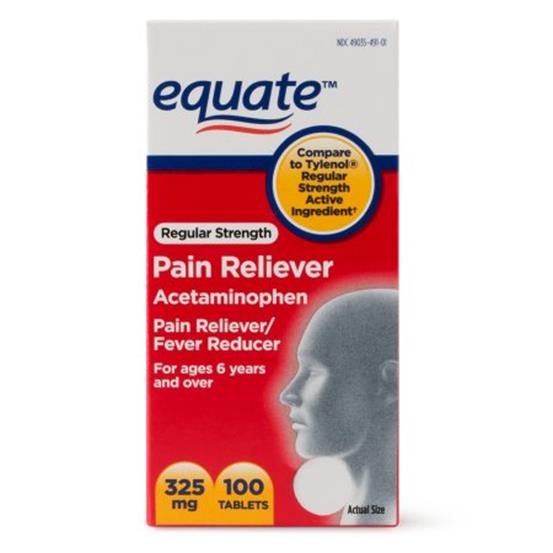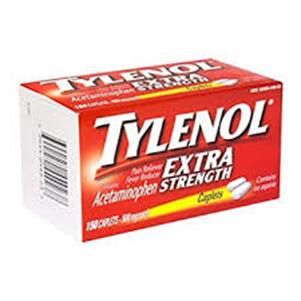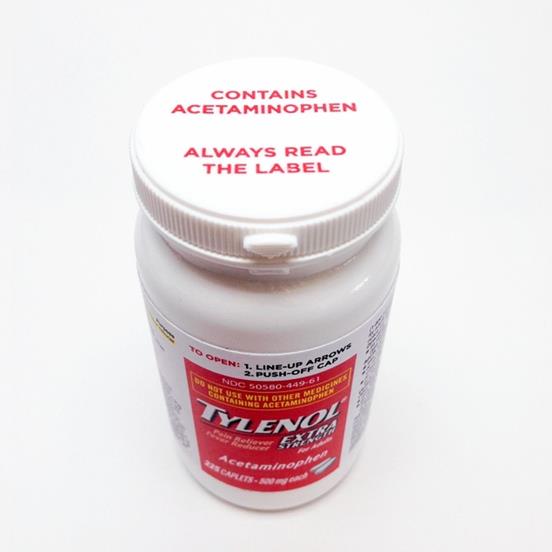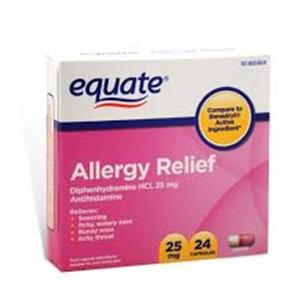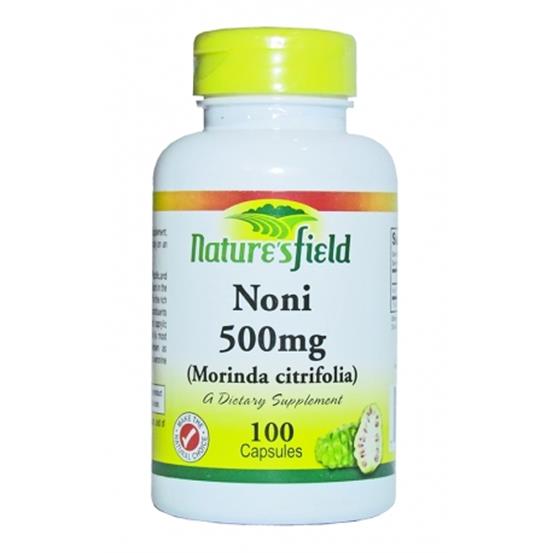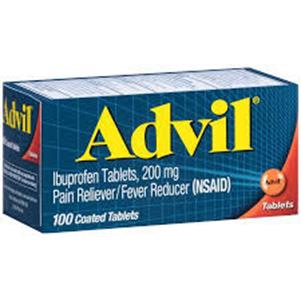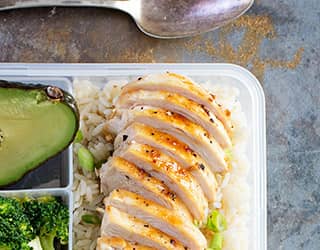
Best ways to live healthier
- Electrolytes, Water, and Dehydration
- Probiotics And Preventing Constipation
- Digestive Enzymes for Bloating
- Magnesium for Relaxation of the Body and Mind
- Natural Mineral Sunscreens and Body Balms Prevent Skin Aging and Damage
Though warm weather brings opportunity for all types of fun social events — the cookouts, outdoor nature excursions, and coastal trips can knock your body off of its usual path. You may find yourself eating food your body isn’t used to, drinking cocktails instead of extra water, skipping your relaxation time, and losing sound sleep.
In addition, the sun’s powerful rays, wet bathing suits, and dry heat bring damage and aging to your body’s protective blanket: your skin.
Here are some simple measures to protect against summer’s common health concerns – such as dehydration, bloating, constipation, red rashes, irritability, and fatigue – including best practices, oral supplements, and topical agents to aid digestion, sleep, hydration, and skin protection.
1. Electrolytes, Water, and Dehydration
It is well known that water is essential for our cells and to avoid wrinkled skin and constipation. But, think twice before reaching for a sports drink since most well-known grocery store brands contain too much sugar, artificial sugar, and artificial dyes. They may cause as much harm as good.
When the weather is warmer we may need to add electrolytes to our water using a high-quality product. Electrolytes are depleted by excess sweating, and each cell needs them to carry the essential electrical connections throughout the body. The main reason for fatigue after moderate exercise and excessive sweating is electrolyte depletion such as salt, potassium, and magnesium . Adding electrolytes daily to water restores energy and is often noticeable within 30 minutes after consumption.
Is there a formulation that is better than others? I favor liquid electrolytes with no added sugars or colors because they offer a formula similar to our cellular composition. To maximize the potential, make sure the salt and potassium dosing are significant, such as 150 mg per dose or higher. The drops are easily added to every glass of water if needed, and they feel good going down.
Electrolytes only work if you drink enough water to replenish your losses, and these losses occur much more quickly than you think when you add long, hot days into the mix. Sweating, drinking little water, and spending time in the sun can lead to feeling constipated with abdominal pain for days.
Follow these three simple steps to stay hydrated when you are on the go.
- Buy a high-quality, environmentally friendly water bottles of choice that provides easy-sipping, keeps cool, and fits in the car well.
- Buy a large gallon plastic-free container or cooler to have in the car and take it with you as you travel.
- Refill the water bottles every hour or so with the larger container. Add electrolytes to your bottles when handy, and always in the morning and when you return home. Refill the large container right away when empty. If you do not delay, you are always prepared and hydrated for the next stage of fun.
2. Probiotics And Preventing Constipation
Probiotic supplements are a combination of live bacteria and yeast that are known to live in a healthy gastrointestinal (GI) tract. Probiotics serve many health purposes, including keeping your digestion regular and pain-free. The unique collection of living organisms inside your gut is called your microbiome. There are many different strains of beneficial organisms, and current research shows having the good forms flourish in your GI tract also benefits brain function.
Disturbances in probiotic colonies (your microbiome) lead to abnormal growth of bad bacteria and symptoms like diarrhea, constipation, and nausea. This can be caused by viruses, antibiotic exposure, sugar, or chemicals ingested in processed foods.
During vacation months, we often challenge our gut health with dietary and lifestyle habits that cause bacterial imbalance. Probiotic replacement in adequate doses may help to restore balance.
How do you choose from all the products on the market? A large body of research shows certain strains significantly alleviate GI dysfunction. Look for these strains: Lactobacillus rhamnosus, Lactobacillus reuteri, Bifidobacterium longum, Bifidobacterium infantis (especially for children), and Saccharomyces Boulardii.
3. Digestive Enzymes for Bloating
Do you ever feel a rock in your stomach when you eat heavy foods like steak or cheese? Often your stomach is not prepared to digest the foods it does not usually see. To travel well and indulge in some comfort foods, digestive enzyme can help to ensure that foods are fully broken down, decreasing the bloating and pain. A usual dose of one or two capsules before meals can keep your digestive juices flowing.
4. Magnesium for Relaxation of the Body and Mind.
Magnesium wins the award for the powerhouse supplement for warm weather thanks to its multiple roles in the body. Increasing the brain levels of magnesium, a mineral critical for muscle relaxation and sleep, leads to enhanced learning, calming, and relaxation. Magnesium deficiency causes irritability and restlessness. Increasing the concentration in the muscles of the digestive tract stimulates the movement of stool.
Taking magnesium each night is highly suggested if you have trouble relaxing or irregular bowel habits. One key form known for relaxing the brain is magnesium glycinate, and one known to keep you regular is magnesium citrate.
5. Natural Mineral Sunscreens and Body Balms Prevent Skin Aging and Damage
Two priorities to keep in warm weather in order to maintain a radiant youthfulness in your skin are protection from sun damage and copious moisturizing.
Sunscreen choices are plentiful these days, and the most common UV blocker, zinc oxide, is used abundantly. While zinc oxide and nano-zinc oxide are deemed to be safe by the US Food and Drug Administration, they have also shown to be toxic when used in higher amounts. Because we do have to reapply sunscreen as often as every hour depending on the degree of sweating, it may be wiser to choose an organic mineral sunscreen that uses the synergistic effect of herbal and mineral combinations (and a lower concentration of zinc) to block the sun’s harmful rays.
Sunscreen should be applied every morning to the face no matter what, just as you should always keep face and body hydrated. Before and after sun formulations with hyaloronic acid and aloe vera add extra hydration to the skin. Shea butter and coconut oil formulations can also penetrate your dry skin barrier to have a lasting hydrating effect.
Grab these essential products, get into your warm-weather supplement routine, and shine brightly in the sunny season.

by Eric Madrid MD
There are things we can do each day to improve our health and create a more “disease resilient” version of ourselves. While a person may have a genetic predisposition for a disease, research shows us that a healthy lifestyle, diet and optimistic thoughts can turn off disease-causing genes while turning on disease-preventing genes. The opposite is also true. Our genes are not our destiny.
In many instances, while under my close supervision, my patients have been able to reduce or eliminate blood pressure, diabetic and pain medications once they started focusing on wellness. Remember, each person is different so never stop or adjust a prescription medication without first consulting with your personal physician.
Read through this list carefully and share the information with friends and family, so they may also benefit.
1. Eat more fresh fruits, vegetables, beans and nuts.
Michael Pollan, author of Food Rules advises, “Eat foods that die”. While fresh fruit and vegetables may be a little more expensive, they will save you money in the long run since you will lower your risk of cancer, diabetes and heart disease.
Eat at least one carrot, one banana, one apple/orange and a handful of grapes or cherries daily. Eat beans daily—choose from pinto beans, garbanzo black beans or kidney beans. Consume greens daily in the form of a salad but limit salad dressing (oil and vinegar is best!). These foods will also lower high blood pressure. For some, chewing raw foods can be a challenge. If that’s a concern for you, consider a green powder drink.
Consume a handful of nuts daily. Nuts such as cashews, almonds and walnuts and help control appetite and protect the brain and heart. A large 2016 study concluded that higher intake of nuts reduces risk of heart disease, cancer and death from lung infections, diabetes and many other infections.
Also, familiarize yourself with the “Clean 15 and Dirty Dozen” list provided by EWG, the Environmental Working Group
This non-profit group identified the following items on its “Dirty Dozen” list of produce, which have high levels of pesticide residue. If possible, these foods should be purchased as organic instead.
- Strawberries
- Spinach
- Nectarines
- Apples
- Peaches
- Celery
- Grapes
- Pears
- Cherries
- Tomatoes
- Sweet bell peppers
- Potatoes
The group also identified the “Clean 15” foods, which contain the least pesticide residue. That means you can buy the non-organic form and not worry about pesticide exposure.
- Sweet corn
- Avocados
- Pineapples
- Cabbage
- Onions
- Frozen sweet peas
- Papayas
- Asparagus
- Mangoes
- Eggplant
- Honeydew
- Kiwifruit
- Cantaloupe
- Cauliflower
- Grapefruit
2. Read food labels
The healthiest foods are listed in Tip #1. However, if you buy food that is packaged or canned, you must read the label. Don’t assume that since it states “healthy”, “all natural” or “fat-free”, that it is good for you. Avoid foods that contain chemicals that are difficult to pronounce.
Pay attention to serving size. Some foods may have 100 calories per serving, however, you may be eating is 4 servings or 400 calories.
3. Avoid white powders
Do not eat white bread, white sugar, or white-flour food items regularly. These are all processed, bleached and “fortified” back with minimal nutrients. If you really want bread, eat whole-ground wheat bread.
Also, avoid white pasta. You should consume brown whole wheat grain pasta or vegetable pasta, which has a lower glycemic index and prevents your blood sugar from spiking. When blood sugar spikes, your body releases excess insulin which contributes weight gain.
If you have diabetes, bread and pasta should be consumed very rarely, if at all. If you avoid these foods, you will lower blood sugar significantly. Caution, if you are on insulin or take diabetic medications, your sugar may go too low.
4. No legs and one leg is best
In Food Rules, Michael Pollan states “Eat food with one leg, such as plants and vegetables, more than food with two legs (chicken/turkey) and more than food with four legs (cows, pigs).” According to some studies, red meat may increase the risk of stomach and colon cancer. However, if you enjoy a good steak or burger, hormone -free, grass-fed beef is a better alternative and likely reduces potential cancer risks. Increase poultry or turkey consumption.
Eat fish (no legs) once or twice a week as studies show a 52% reduction in fatal heart arrhythmias (irregular heartbeats) in those who do. Alternatively, omega 3 fish oil is a good supplement to take.
5. Avoid drinking carbonated soft drinks
One 12 oz. can (330 ml) has between 7-10 teaspoons (32-50 grams) of sugar and about 100-150 calories. A 32 ounce (946 ml) soft drink has up to 400 calories and 18-30 (90-150 grams) teaspoons of sugar.
No calorie soda (i.e Diet Coke, Coca-Cola Light, Pepsi Light), which has aspartame (NutraSweet), increases your appetite and ultimately result in weight gain. Some studies show this increases the risk of weight gain, high blood pressure and heart disease.
Be cautious with energy drinks (Red Bull, Hi Tiger, Monster, Rockstar) as the caffeine levels can be dangerous, especially for children.
Solution: Drink filtered water, naturally flavored carbonated water, herbal tea, unsweetened ice tea and kombucha tea. (Kombucha was named after a Korean doctor named Kombu around 415 AD, who treated an ill Japanese Emperor with a fermented tea or cha)
6. AVOID High Fructose Corn Syrup (HFCS) and Trans Fats
HFCS provides a lot of calories and is used to sweeten thousands of foods, including sodas and breads.
Also, avoid anything that has trans fats (label states hydrogenated oils or partially hydrogenated oils). Trans fats damage your arteries, leading to clogged arteries and heart attacks.
If you need to sweeten a food, use raw cane sugar or stevia. Avoid other artificial sweeteners.
7. Cook your own food
Avoid fast food restaurants. The more you cook your food at home, the healthier your food and ultimately you will be.
Coconut oil is ideal for cooking at high temperatures and is healthier than canola oil. Light sesame oil is also acceptable at high temperatures and has various health benefits.
Olive oil (pure and virgin) are good alternatives but only cook with olive oil if at low and medium temperatures.
Avoid use of vegetable oil or lard when cooking as they are bad for your health.
8. Limit or Avoid Dairy Products
Studies show an increased risk of prostate cancer and breast cancer for those who consume the highest amount of dairy products. If you MUST have cow’s milk, drink organic only. If you are lactose intolerant, drink lactose-free milk.
Cow’s milk is made for baby cows and helps them become big cows. Bloating, chronic diarrhea, asthma, seasonal allergies and post nasal drip may be worse with regular (>2 times/week) consumption. Eliminate it from your diet for 2 weeks minimum to see if your symptoms, if present, improve.
Alternatives? Almond milk, cashew milk, rice milk or soy milk
9. Drink more green tea.
However, it is ok to also drink up 1-6 cups of coffee per day if tolerated. Green tea helps burn fat, lower blood pressure and helps prevent cancer, heart disease and strokes. Drink 1-3 cups/day.
If you drink coffee, avoid adding sugar and creamer. Black coffee has ZERO calories. Coffee appears to have many health benefits, including lowering diabetes, cancer and Alzheimer’s risk.
10. Alcohol
Men should limit to 2 drinks/day; women should limit to 1 drink/day.
Drinking more than this increases your risk for liver disease and diabetes and breast cancer in women. If you don’t drink, don’t start. For those who drink regularly, N-acetyl cysteine (NAC) and milk thistle should be taken to help protect the liver from damage.
11. Sleep at least 6 hours per night, preferably 7.
Those who sleep less than 6 to 7 hours on average eat over 200 extra calories per day, increasing the risk of overweight and/or obesity.
Don’t sleep well? Ask about a sleep apnea evaluation.
Melatonin should also be taken if you have trouble sleeping, starting with at least 3 mg, increase to 20 mg each night if needed. Allow up to 2 weeks for it to start working. For some, it may work sooner.
12. Increase physical activity and get plenty of sunshine
Get 150 minutes/week of moderate exercise, some of it should be outdoors, where there is fresh air.
Try to spend 15 to 30 minutes each day outside with your arms legs and face exposed to the sun. This will help generate vitamin D. Read more about the health benefits of vitamin D
Also, during exercise, use tracking technology like a Fitbit tracker, Apple Watch tracker, MyFitnessPal app, and others. Routine exercise helps increase happiness and improves overall heart and brain health. Exercise also helps prevents dementia and creates new nerve connections in the brain.
13. Forgive those who have wronged you, reconcile and move on.
Anger and hatred increase your risk of a heart attack, stroke, infections, neck/back pain, unhappiness and ultimately premature death. Holding onto anger will negatively affect your overall health.
Did you know?
-Eating at least one healthy midday snack decreases the risk of obesity by 39%
-Waiting for more than 3 hours after you wake up to eat increases risk of obesity 43%
-Not eating a healthy breakfast increases the risk of obesity 450%
-Eating breakfast away from home, like at a fast food restaurant, increases the risk of obesity 137%
-Eating more than 1/3 of your meals in restaurants increases your risk of obesity by 69%
Recommended Supplements
Note: Supplements should never replace a healthy, balanced diet.
General supplements that should be taken by most.
- Multivitamin –Take 1 tablet daily or as directed on the label.
- Probiotic Supplement – 10 billion units minimum, once or twice per day. Fixing a leaky gut is also vital to overall health.
- Fish Oil (Omega-3) -1,000-2,000 mg once or twice per day. Benefits: Reduce triglycerides up to 50 percent, protect your heart arteries and brain. Lowers cardiac-CRP. Help reduce joint pain (nature’s anti-inflammatory).
- Vitamin D -2,000-5,000 IU of vitamin D3 daily. Benefits: Studies show less colon cancer, breast cancer, ovarian cancer, lung cancer, heart attacks, osteoporosis, multiple sclerosis, diabetes, chronic pain and more when vitamin D blood level 50 ng/ml or more.
- Magnesium chelate -125 mg up to 500 mg daily. Helps with cramps, muscle spasms, heart palpitations and migraine prevention.
Other Supplements for Specific Issues
- Melatonin – 3-20 mg each night for sleep-related issues. Note: It may take up to 2-3 weeks to start working.
- N-Acetyl Cysteine (NAC) – 600 mg once daily or twice per day for fatty liver, those who take daily acetaminophen/paracetamol (Tylenol) or consume alcohol routinely. NAC helps the liver detoxify chemicals from the body.
- Turmeric -500 mg up to three times per day (anti-inflammatory, joint pain and optimal brain health)
References:
- Aune D, Keum N, Giovannucci E, et al. Nut consumption and risk of cardiovascular disease, total cancer, all-cause and cause-specific mortality: a systematic review and dose-response meta-analysis of prospective studies. BMC Medicine. 2016;14:207. doi:10.1186/s12916-016-0730-3.
- Mohebi-Nejad A, Bikdeli B. Omega-3 Supplements and Cardiovascular Diseases. Tanaffos. 2014;13(1):6-14.
- Meghan B. Azad, Ahmed M. Abou-Setta, Bhupendrasinh F. Chauhan, Rasheda Rabbani, Justin Lys, Leslie Copstein, Amrinder Mann, Maya M. Jeyaraman, Ashleigh E. Reid, Michelle Fiander, Dylan S. MacKay, Jon McGavock, Brandy Wicklow, Ryan Zarychanski. Nonnutritive sweeteners and cardiometabolic health: a systematic review and meta-analysis of randomized controlled trials and prospective cohort studies. Canadian Medical Association Journal, 2017; 189 (28): E929 DOI: 10.1503/cmaj.161390


